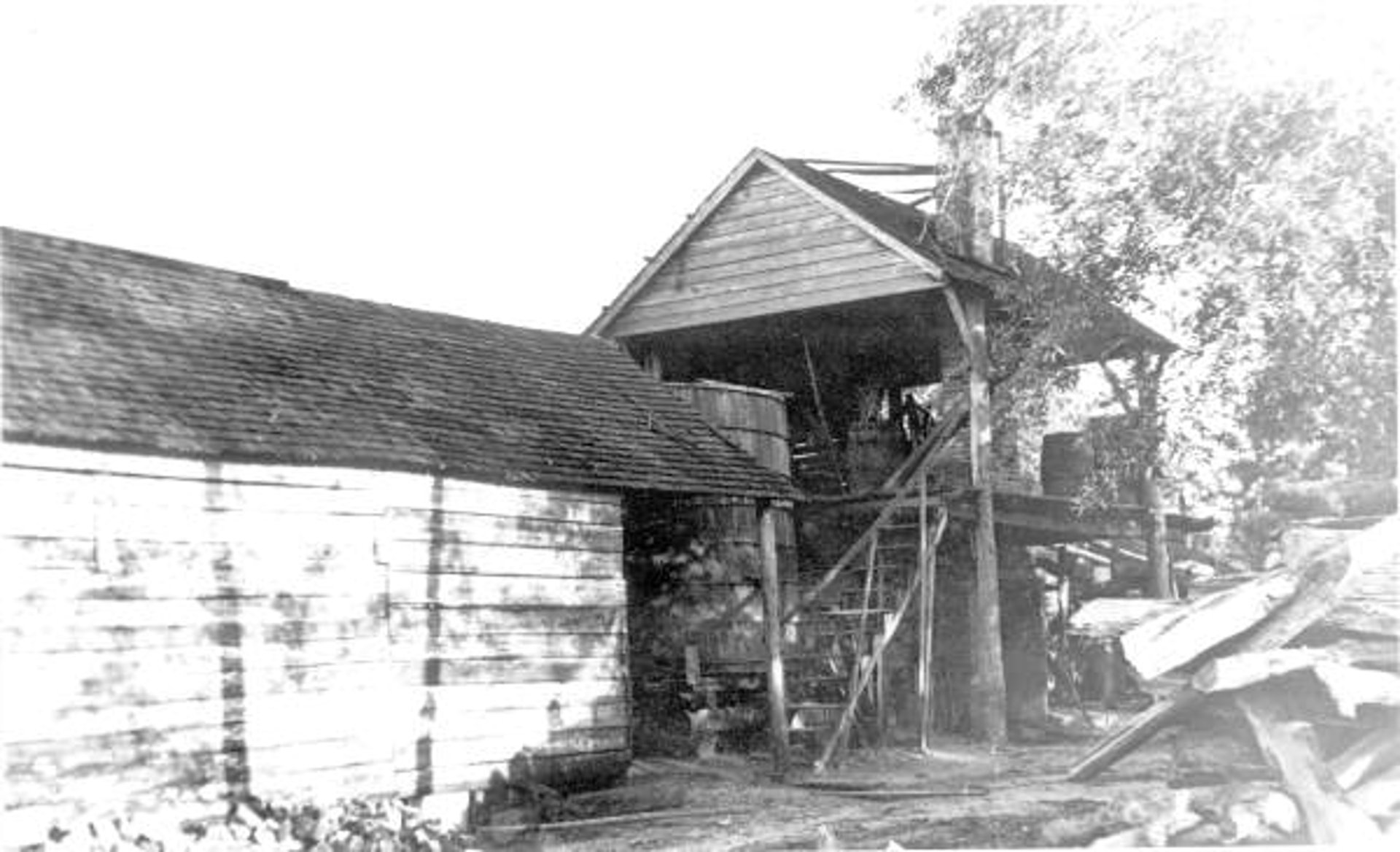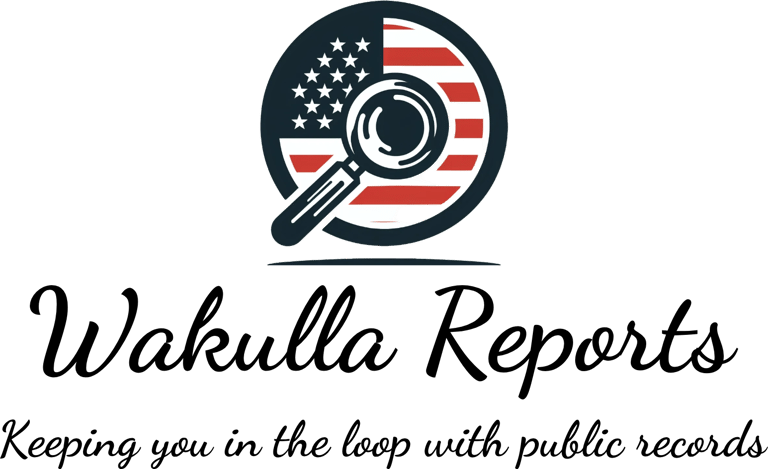Wakulla's $17 Million Radio Deal: Sketchy Bids and Local Buzz
Explore the controversy surrounding Wakulla's $17 million radio deal involving sketchy bids and abrupt transactions. Discover the local buzz and insights into this unfolding story in Wakulla news.
MONEY & FINANCE2025
4/3/20254 min read


Picture a small Florida county with about 35,000 residents, tangled in a $17 million dispute over the radios that keep police, firefighters, and paramedics connected. That’s Wakulla County, just south of Tallahassee, where a legal showdown unfolded in Williams Communications, Inc. v. Wakulla County and Motorola Solutions, Inc.. It started with bold claims of shady dealings and ended abruptly in April 2024 with barely a whisper. For a place with a court history of underhanded business, the silence—and a last-minute twist involving a key witness—leaves a lingering whiff of something fishy. Here’s the tale, plain and simple, for folks who don’t know procurement from a picnic.
The Basics: What Was This Fight About?
Wakulla County needed a new radio system for its first responders—think of it like upgrading your Wi-Fi to keep emergency calls crystal clear. In 2022, they launched a public bidding process, called a Request for Proposal (RFP), with strict rules: the system had to use “quarter-wave” antennas to ensure strong signals across the county’s rural patches. This wasn’t optional—it was a safety must.
Two companies bid: Williams Communications, a Florida veteran with 60 years in the game, and Motorola Solutions, a heavy hitter from Illinois. Motorola snagged the $17 million deal, but Williams sued in 2023, claiming Motorola cheated by using the wrong antennas and that the county rigged the game to let them win.
The Drama: Antennas, Towers, and Trickery
Let’s break down the tech without the jargon. Antennas are the radio’s lifeline—quarter-wave ones are shorter, needing more towers to cover the county, which jacks up costs. Williams said Motorola used banned “half-wave” antennas instead—longer, cheaper, and needing fewer towers (six instead of eight). This let Motorola undercut prices by millions while pretending they followed the rules. Williams argued this wasn’t a minor oops—it could mean spotty radio coverage, a real risk for first responders.
Williams also pointed fingers at the county’s scoring process, handled by their hired consultant, Tusa Consulting. They claimed Tusa noticed Motorola’s bid was missing key data but didn’t call it out, letting Motorola slide to victory. Williams insisted they’d have won with a better, cheaper offer—saving the county $3 million—if the rules were followed. And this wasn’t Wakulla’s first mess: a 2021 RFP fell apart after Williams won but didn’t get the contract, hinting at a habit of funny business.
The Lawsuit: A Call for Justice
In August 2023, Williams filed a beefy complaint in Wakulla County’s circuit court, asking a judge to:
Declare Motorola’s bid a bust and the contract illegal.
Stop the county from working with Motorola.
Give the job to Williams instead.
The case rolled on with legal tussles—paperwork wars, depositions, and a mediation session in March 2024. A trial loomed for June 2024. But then, a curveball: on March 19, 2024, Williams canceled a deposition of Nick Tusa, a bigwig at Tusa Consulting, set for March 27. Just weeks later, on April 18, 2024, they dropped the case “with prejudice”—meaning it’s done for good. No explanation, no fireworks—just silence.
The Likely Ending: A Secret Deal?
What gives? The timeline’s telling. Mediation happened on March 7, 2024, and a report filed the next day suggests talks bore fruit. Then, Tusa’s deposition gets scrapped, followed by the dismissal six weeks later. In cases like this—especially over public contracts—a voluntary drop with prejudice often screams settlement. Maybe Williams got cash to walk away, or the county tweaked something under wraps. The dismissal said everyone pays their own lawyers, but that doesn’t rule out a quiet payout.
Why settle? The county had already green-lit Motorola back in March 2023, and work might’ve started. Unwinding that could’ve been a nightmare, costing more than anyone wanted. A deal keeps Motorola on the job, gives Williams something for their trouble, and lets the county dodge a public loss. Practical? Sure. Transparent? Not so much.
The Tusa Twist: A Witness Vanishes
Here’s where it gets murkier. Nick Tusa wasn’t just any witness—he was tied to Tusa Consulting, the firm Wakulla paid to keep the RFP fair. Williams claimed Tusa spotted Motorola’s flaws but didn’t act, tilting the scales. His deposition could’ve been a bombshell: Did he miss the mark? Was he told to look the other way? We’ll never know—canceling it right after mediation smells like someone didn’t want answers aired. In a county with a reputation for shady operations, this last-minute dodge fits a pattern of keeping skeletons buried.
The Weird Part: No Local Chatter?
Wakulla’s no sprawling city—it’s a tight-knit spot where gossip spreads like wildfire. A $17 million fight over emergency radios, with cheating claims and a key witness sidestepped, should’ve been hot news in The Wakulla News or the Tallahassee Democrat. Early 2023 reports covered the lawsuit’s kickoff, but after the April 2024 dismissal? Nothing. No “Case Closed” headlines, no updates—just a void.
That’s odd for a small county where $17 million and public safety matter big-time. Wakulla’s court history of backroom dealings—like botched procurements and insider favors—makes this hush even fishier. Was it too boring to follow up? Hardly. More likely, the quiet was intentional—maybe a settlement gag order, or just local power brokers keeping lids on tight. Either way, it’s suspicious as hell.
Conclusion: Something Stinks, But We’re Left Guessing
The Wakulla radio saga feels like a textbook case of procurement gone rogue, patched up with a likely settlement. Williams had a legit beef—Motorola bent the rules, and the county’s process reeked. Tusa’s canceled deposition, right before the case vanished, only thickens the plot—did he know too much? A deal after mediation probably settled it, letting Motorola build the system while Williams walked away with something. But in a small county with a knack for shady business, the total news blackout screams cover-up. Something stinks here, and without the spotlight, Wakulla’s folks may never know if their radios—and their tax dollars—got the short end of the stick.

Additional Social Links
YouTube is your go-to for short clips, video explainers, and visual breakdowns of how Florida and Wakulla governments really work.
Facebook brings you bite-sized written content, sticky-note facts, and rolling updates you can share and discuss.
NEW! TikTok You can now follow Wakulla Reports on TikTok for quick updates and BOCC video clips.
Prefer to browse at your own pace?
Bookmark our website and visit anytime for fresh posts, resources, and real-life examples from right here in Wakulla County.
© 2024. All rights reserved.
